The dawn of January 1989 was a joyous time for Sylvie and Thierry Witsel as they welcomed their son, Axel Witsel, into the world in Liège, Belgium. Not long after, Axel was joined by his beloved younger sister, Whitney Witsel. From an early age, Axel showed an unrelenting passion for football. Unlike most children who fancied toys and games, Axel only had one thing in mind—a football. It was his constant companion and his love for the game was undeniable. By the age of 10, he made a bold decision to pursue his dream seriously. Leaving behind casual games with friends, Axel joined Standard Liège’s academy in the late 1990s, marking the start of his professional journey.
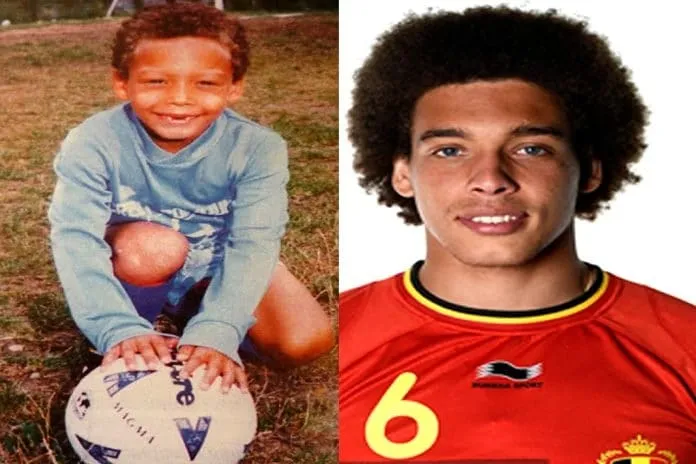
The Early Years of Axel Witsel: From Liège Streets to Football Fame
Preamble:
Axel Witsel’s development coincided with a transformative era for Belgian football. After a disappointing exit from the 1998 World Cup, Belgium’s football association vowed to rebuild, focusing on nurturing young talents to elevate the national team’s future. This movement gave rise to what we now call Belgium’s “Golden Generation,” a group of players including Axel Witsel, Romelu Lukaku, Kevin De Bruyne, and Toby Alderweireld. These footballers were the face of the nation’s football resurgence, and Witsel played a central role in that evolution.
In this biography, we explore Axel Witsel’s life story, from his early childhood to his rise to football fame. Known by the nickname “Chaloupe,” Axel’s journey from a young boy with a football in his hands to becoming a key figure in Belgian football is both inspiring and remarkable. This article offers insight into Axel’s career, family background, and the pivotal moments that shaped him into the player he is today.
Axel Witsel Childhood Story – Family Background:
For those just getting familiar with his life story, Axel Laurent Angel Lambert Witsel was born on January 12, 1989, to his parents, Sylvie and Thierry Witsel, in the vibrant city of Liège, Belgium.
Axel grew up in a mixed-race household, surrounded by love and warmth. His parents, who had their children at a young age, created a nurturing environment for Axel and his sister, Whitney.
Sylvie, his mother, is of Belgian descent, while his father, Thierry, traces his roots back to the French Caribbean island of Martinique. This rich cultural background played a significant role in shaping Axel’s identity and character.
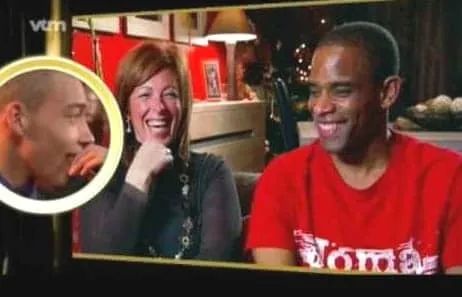
Meet Axel Witsel’s Parents – Sylvie Witsel (his Mother) and Thierry Witsel (his father).
Early Years:
Axel Witsel grew up with his younger sister, Whitney Witsel. Even though their mother is Belgian and white, both Axel and Whitney take after their father, which is why they are often seen as part of the Black Belgian community.

Axel grew up alongside his sister, Withney.
Growing up, Whitney and Axel felt deeply loved, thanks to the strong communication they learned from their parents. For Axel, football became his passion early on — as a young boy, he always had a ball at his feet, and football quickly became his favorite hobby and talent.
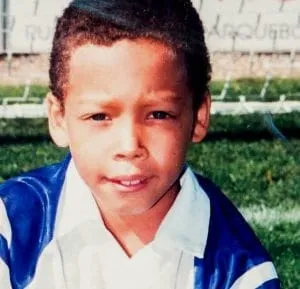
A rare childhood photo of the Belgian footballer.
Axel Witsel’s parents allowed him to play football on open fields but never expected him to pursue it seriously, given the limited opportunities in Belgian football at the time. Reflecting on his childhood, Axel recalls:
“There were no toys or games when I was younger, just a football. I’m truly grateful for everything my dad did. He always encouraged me. Without him, I wouldn’t be on this incredible journey.”
At the age of 15, Axel decided to move beyond playing casually with friends. He received an opportunity to go professional with Standard Liège, thanks to support from the Royal Belgian Football Association’s funding. This marked a turning point in his career, paving the way for his involvement with Standard Liège, as detailed below.
Career Buildup:
In the late 1990s, Belgium experienced a surge of enthusiasm for football that sparked a revolution in the sport. This period was particularly significant for the country, which has a population of just 11 million, as it faced a turning point in 1998 when the national team suffered a humiliating exit from the World Cup group stage.
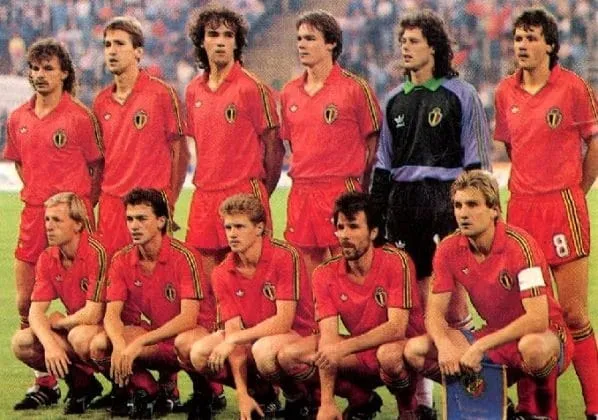
Bob Browaeys, who served as the coach for Belgium’s youth teams at all levels, was assigned to develop a blueprint document aimed at addressing the “lack of unified vision” in youth football at the time. This initiative resulted in a gathering of over 30 Belgian federation coaches to discuss a radical shift in the country’s approach to the sport.
One key takeaway from their discussions was that there was an excessive focus on winning rather than on player development, which sparked a youth football revolution in Belgium. This shift brought significant financial support to football clubs, enhancing their scouting networks across the country.
As a result, Axel had the chance to be scouted and ultimately signed by his hometown club, Standard Liège.
Axel Witsel Biography – Career in Summary:
Unlike many footballers who begin their youth careers at a young age, between 6 and 8, Axel joined a youth club relatively late at 15. Despite this late start, he experienced a rapid rise in his development, and his ambitions of joining the senior team were serious and not just a fleeting dream.
At that time, Axel was known for his exceptional ball control and ability to protect the ball from defenders. Reflecting on this skill, he stated:
“I was always like that, playing nothing else except a football ever since I was a kid. I love to hold the ball and shield it. It’s one of my strengths — knowing how to use my body has always been my style.”
Axel successfully progressed through all the youth ranks and began his senior career at Standard Liège, with his father serving as his agent. Over his time with the club, he made a total of 183 appearances, scored 42 goals, and won five domestic trophies. Two standout moments in his rise to fame included being awarded the Belgian Golden Shoe in 2008.
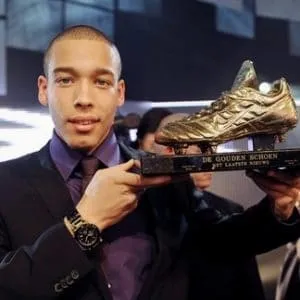
One of Axel Witsel’s early career successes.
The second notable moment in Axel’s rise to fame came when he won the Young Footballer of the Year Award for the 2007/2008 season.
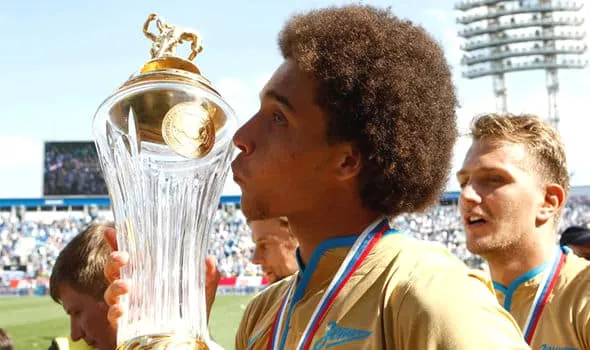
With his numerous achievements, Axel Witsel emerged as one of Belgium’s most accomplished and sought-after footballers.
Just like Romelu Lukaku (CF), Kevin De Bruyne and Eden Hazard, Axel became a bona fide member of the Belgian golden age footballers. Lastly, Axel has the list of Amadou Onana and Roméo Lavia following in his footsteps in the Belgian midfield. The rest, as they say of the Defender who graced Atlético de Madrid colours, is now history.
Love Story with Rafaella Szabo:
Behind every great man, there’s a great woman, or so the saying goes. And behind almost every successful Belgian footballer, there’s a glamorous wife, wag or girlfriend.
Without a doubt, Axel Witsel’s style of play, as well as his lifestyle off the pitch, build up a complete picture of him. Axel has been in a relationship with Rafaella Szabo, who was born in Romania with Hungarian roots. She moved to Belgium when she was two years old.
Both Rafaella and Axel dated for six years before deciding to tie the knot in 2015. Their marriage is currently blessed with two lovely daughters who are recent members of the Axel Witsel family. Axel’s eldest daughter’s name is Maï-Li Witsel.
The Aim of Building a Rich Family Background:
In 2017, Axel Witsel’s choice to turn down a transfer to Juventus in favor of a lucrative deal from the Chinese Super League left fans around the globe feeling disappointed. In interviews, Witsel explained that he believed he made the best choice for his family.

Witsel accepted the lucrative offer from China, worth €18 million per year, to create a secure financial future for his family. He aimed to establish a prosperous background that would ensure decades of stability and happiness for them.

Axel was not influenced by Juventus’s offer of €4.5 million per year, particularly since he was already earning €3 million per year at Zenit. Accepting the Juventus deal would have meant joining a historically strong European club that was competing in the Champions League knockout rounds, giving him a real chance to win the tournament.
Instead, he chose to sign with China’s Tianjin Quanjian, a club established in 2006, following the path of players like Carlos Tevez, for an annual salary that was four times greater than what Juventus offered.
When Witsel’s transfer to Tianjin was announced, social media exploded with fans labeling him a mercenary and a money grabber, hurling various insults that athletes often face when they prioritize financial gain over other aspects of their careers.
The Defense:
Everything about Witsel’s answer to the accusation from fans as regards his transfer to China was perfectly reasonable.
He was realistic about his motivation to provide for his family and assure his future, and why shouldn’t he be?

In his words;…
More than ever before, soccer is a business. It’s driven by profits, margins, and turnover. Players are equally commodities and employees, free to be traded and dealt as a balance sheet and finances dictate.
In the business world, a move to a new job that led to an employee sextupling their salary would be greeted with congratulations and praise.
But for some reason, this sentiment doesn’t seem to apply to athletes. Why should sportspeople be held to a different standard than the rest of the world?
For supporters who watch the sports day in and day out, it can be difficult to grasp that this beautiful game of soccer is just a job for a number of athletes.
While many fantastic players do show up and entertain the crowds simply for the love of the game, for others, it’s solely an avenue to make a comfortable living and take care of one’s family.
Fans often live vicariously through their sporting heroes, and to hear that they’re motivated by money rather than a pure, unadulterated passion for the game can be a real hammer blow, especially given the tiny minority of people who do earn the opportunity to be professional athletes.
Because of this, lots of his fans have agreed that Witsel’s decision makes perfect sense.
Personal Facts:
Your hobbies outside of football?
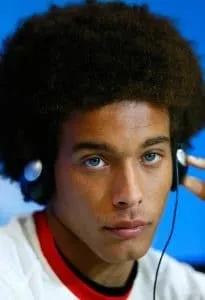
Football for me is business. I also love entertainment. Not long ago I bought a DJ turntable. I have a lot of friends who are DJs, so I started to play with it a little bit. For the time being it’s just for me.
Once Caused Outrage:
Witsel sparked outrage in 2009 when he broke Marcin Wasilewski’s leg. He stamped on him during a game between Anderlecht and Standard.

He faced an eight-match ban for the incident and received numerous death threats from angry Anderlecht and Poland supporters.
Racism Story:
Years ago, the supporters group of Zenit St. Petersburg expressed a desire to exclude non-white and gay players from the team. The largest fan group, Landscrona, stated in an open letter that black players, including Axel Witsel, were being “forced down Zenit’s throat.” They further claimed that gay players were “unworthy of our great city.”

In defence of their racist views, some Zenit fans stated in their manifesto:
“The lack of black players in Zenit’s lineup is simply an important tradition that highlights the team’s identity and nothing more.”
Unfortunately, black players in the Russian league have frequently faced discriminatory behaviour, including monkey chants and banana throws. For instance, Anzhi Makhachkala’s Christopher Samba had bananas thrown at him by fans.
Furthermore, Zenit St. Petersburg faced a fine from the Russian Football Union when one of their fans presented a banana to Roberto Carlos of Anzhi prior to a match between the two teams in March 2011.
Fact Check:
Thanks for reading our version of Axel Witsel’s Biography. We strive for accuracy and fairness in our quest to deliver you Belgian Football Stories. The Life History of Timothy Castagne and Albert Sambi Lokonga will excite you. If you see something that doesn’t look right in this article, please place your comment or contact us!


